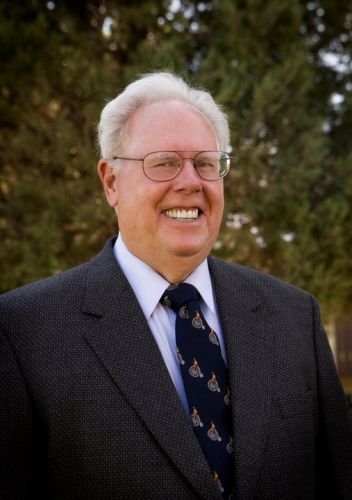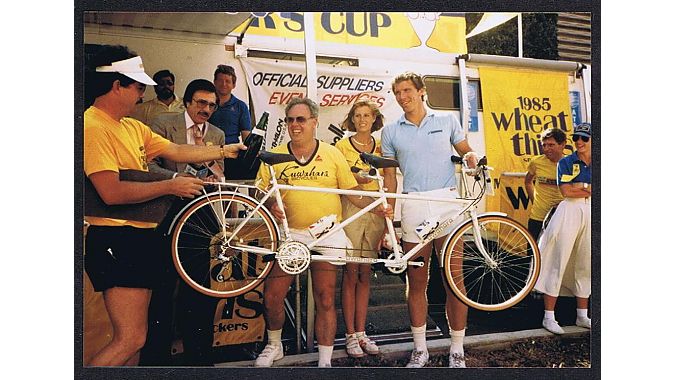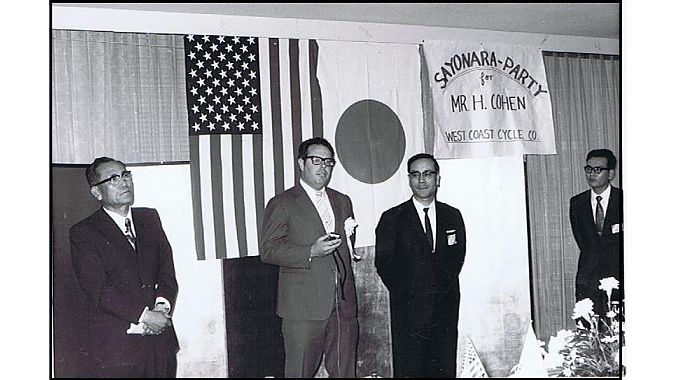LAFAYETTE, CO (BRAIN) — Howie Cohen, a hugely influential figure in developing the U.S. BMX market and arguably the first person to bring high-quality Asian-made bikes to America, died in the early morning hours Thursday surrounded by family in his hometown of Lafayette, Colorado. He was 74.
Cohen was treated for lymphoma eight years ago and had been in remission up until last month, said retired Kool Stop president Gene Smith, Cohen’s friend of 50 years who was in Lafayette with Cohen at the time of his passing. The cancer had spread to Cohen’s liver, and he spent the past few weeks in and out of the hospital, Smith added.
Although Cohen retired in 1989, he continued to do occasional consulting work in the industry as well as maintain his passion project, an online cycling memorabilia and bike collection at www.howiebikeman.com, until shortly before his death.
“I think he will be remembered as an innovator, bringing the first quality Japanese bikes to the United States, and as one of the first people to go to Japan and Taiwan for bicycles,” his wife, Kay Cohen, said Friday. “He was a forerunner in most of the things he did in the bicycle industry.”
“One thing that everyone in the industry knows about Howie is that he was never without smile,” said Jay Townley, industry consultant and former Schwinn executive.
The well-traveled Cohen had friends throughout the global industry, all of whom he was happy to help at a moment’s notice, added Townley, who sought Cohen’s counsel when Schwinn’s interest in the BMX market heightened during the 1970s.
Cohen came up in the bike business through his parents’ shops, first in Minneapolis and later in Los Angeles. After growing to three Southern California locations, the Cohen family sold the retail business and launched distributor West Coast Cycle.
During the early 1960s, when West Coast Cycle—and its retailers—grew dissatisfied with the quality of the higher-end bikes it was bringing over from Europe, Cohen’s mother, RosaBelle, twice sent him to Japan to investigate new manufacturers. He visited dozens of factories before zeroing in on Kawamura Sangyo, which in 1964 produced the first run of West Coast Cycle’s American Eagle bikes, later rebranded as Nishiki. Priced at more than twice the cost of other three-speeds coming out of Japan, Cohen’s bikes were outfitted with high-quality parts he persuaded suppliers like Shimano, Sugino, Asahi and Dia-Compe to start making.
“The bikes were a big hit with our dealers and we sold out in a few months. At $49.95 they were quite a bit more than the Japanese bikes the discounters sold,” Cohen told BRAIN in a 2010 interview.
West Coast’s next brand, Azuki, was also successful, and in 1976 Cohen retired at age 37.
But he soon returned to the industry and launched BMX wholesaler Everything Bicycles in 1978, distributing brands including Powerlite and Torker. He also mined an existing relationship with manufacturer Kuwahara in Osaka to bring the Japanese brand to the U.S. BMX market.
Kuwaharas would famously take flight in Steven Spielberg’s 1982 blockbuster film “E.T. the Extra-Terrestrial,” and Cohen scored a marketing coup in obtaining the worldwide rights to sell bikes with the E.T. name, which were a smash hit. He was also the first to bring anodized chainwheels, brake levers and other components to the BMX market, Kay Cohen noted.
“He loved the bike industry. He was in it since he was 7 years old,” she said. “He just loves bicycles. It wasn’t a question of the business or the monetary rewards, even though that came. He just loves the industry and the people, and the challenge of seeing the progress and the innovation.”
There will be no services for Cohen, but a memorial will be announced at a later date, Kay said.
In addition to his wife of 31 years, Cohen is survived by four children and three grandchildren.








